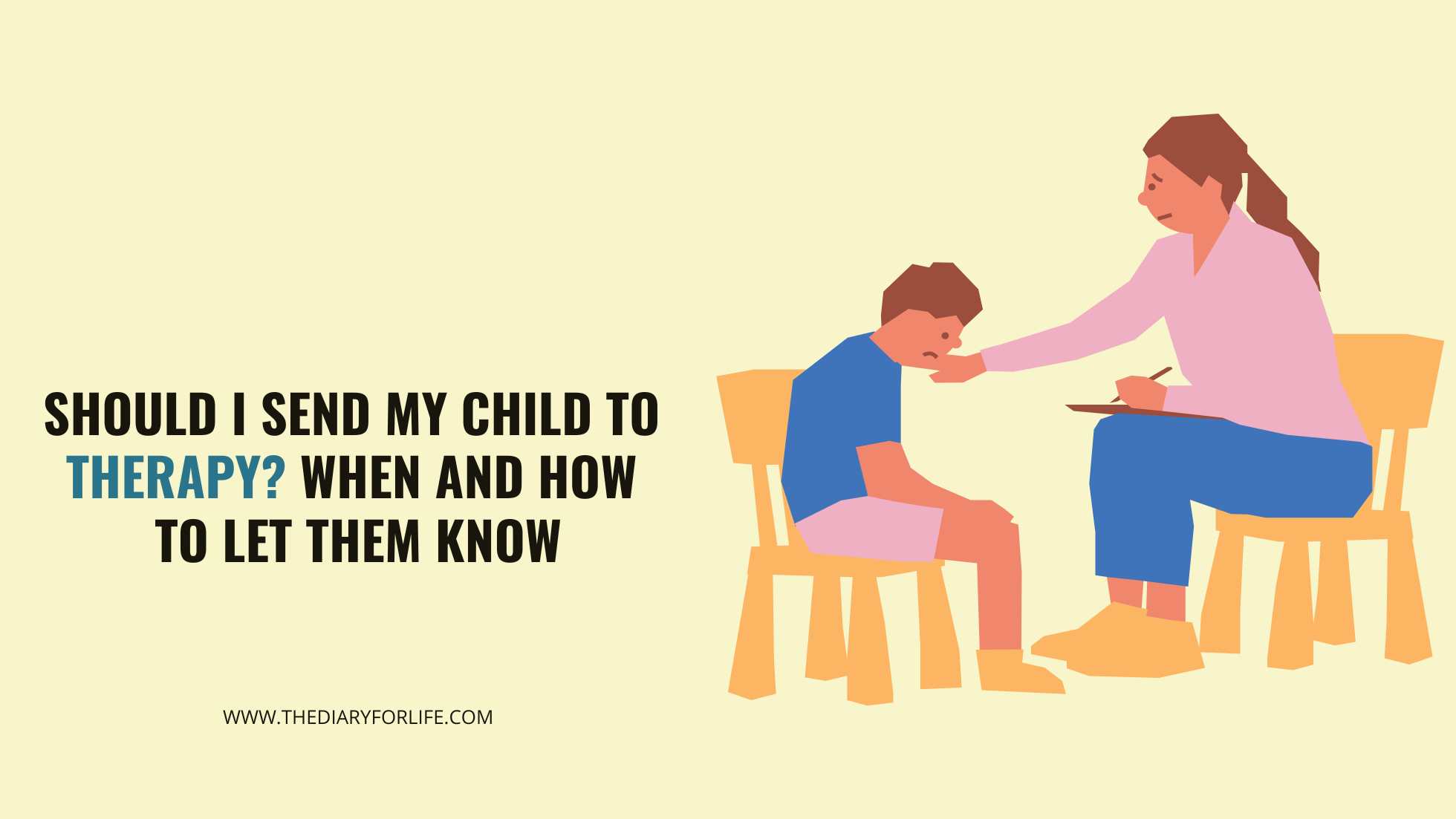Children are some of the happiest people you will ever meet: they are typically lively, playful, and carefree.
However, they aren’t exempt from negative emotions; they can also feel sadness, anger, and more. And should it escalate, there are various options you can try to help your child. One such option is therapy.
Therapy can significantly benefit people’s mental health in many ways, including that of children. As long as they’re willing participants, patients in therapy can recover as soon as possible. Here are signs your child may need to go to therapy and a few tips on bringing it up.
Table of Contents
Consistent Distress

One giveaway that a person could be plagued with a mental health issue is consistent distress that has started to affect their daily lives. It manifests feelings of grief, irritability, or even hopelessness. It could be a sign of mood disorders, the leading type of mental disorder worldwide.
For example, depression is the leading mental disorder in the US, anxiety in Australia, and mixed anxiety and depression in the UK.
So if your child experiences distress affecting them, it is best to get them to seek help. Your area likely has some mental health services. Whether it’s the best child psychologist melbourne has to offer or a professional in New York, there are always clinics and hospitals with mental health professionals wherever you are.
A Shift in Routines and Attitudes

One of the signs that mental health professionals typically look after is a shift in what their patients usually do.
One of the signs of mental distress in many people is a drastic or eventual shift towards a routine or behavior that’s typically negative. It can be an inability to finish tasks, loss of interest or appetite, and more.
Trouble With Relationships

How does your child communicate with you? With other members of the family? With friends? With everybody else? How does your child perceive and communicate with others, and how do they cope with events like the death of a loved one or being teased?
Children do not necessarily have to have the best relationships with everyone they know, of course. Still, some situations could affect their lives, like bullying or grief over loss, and they must be addressed as soon as possible.
If your child or someone you know has experienced severe bullying and abuse, contact the emergency services and the proper authorities immediately.
Trouble With Academic Performance

A sign that a child could be troubled is terrible performance. Schools are excellent for seeing it, as they require student output. Parents will typically be contacted if there is trouble with a student, like them getting significantly low grades, getting into a fight, or breaking a rule, which could signify that intervention is needed.
Exhibition of Symptoms in Familiar Mental Illnesses

Lastly, if you or anyone in your family has been diagnosed with mental illnesses, you may want to check on your child. Depending on your family’s mental or psychiatric illness, it can be hereditary. Early screening may help you with better options moving forward.
How to Convince Your Child to Undergo Therapy
Here are some tips to help you encourage therapy for your child.
Explain the Concept of Therapy

A simple way to let your child know they need therapy is to explain. Talk to your child about what therapy is, how it works, and how it can help them with their troubles. If your child’s age is in the single digits, you can tell them you will visit someone for a bit of talk to ease them in slowly.
Seek Counseling or Advice

If you have no experience with therapy or have a child who is either too unstable or unwilling to undergo therapy, it is best to seek professional help. You can also undergo therapy yourself to see what it’s like or to ask for advice on what you can do with your situation. You can see a child therapist for inquiries, or you can communicate with the guidance counselor of your child’s school.
Negotiate or Provide Rewards

Another way to convince your child to go to therapy is to do positive reinforcement. If you have a child refusing or reluctant, you can encourage them to go to therapy with the promise of a reward. Associating therapy with something nice can help the child warm up to the idea. You can promise to get something after therapy, like dessert or a gift, or do an activity like shopping or a stroll in a park.
Be Supportive

The most important thing you need to let your child know is to be supportive of them. If you want your children to undergo therapy, you must be as supportive as you want them to agree and commit to it. You can show your support by attending the therapy session with the child if they want to, respecting their privacy if they want to do the therapy by themselves, and keeping up with their appointment schedule.
In Conclusion
When your child shows problems that affect their regular life, please pay attention, and listen to them should they approach you for help. As you see a professional to assist with their troubles, always assure your utmost love and support.
Also read: How To Cheer Yourself Up When Feeling Down

